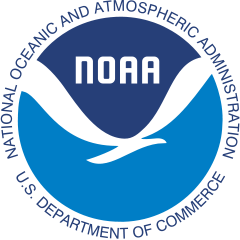The MDTF-Diagnostics Package
A Portable Framework for Weather and Climate Model Data Analysis

Package Overview
The Model Diagnostics Task Force (MDTF)-Diagnostics package is a portable framework for running process-oriented diagnostics (PODs) on weather and climate model data. Each POD targets a specific physical process or emergent behavior, with the goals of determining how accurately the model represents that process, ensuring that models produce the right answers for the right reasons, and identifying gaps in the understanding of phenomena.
The package provides an extensible, portable and reproducible means for running these diagnostics as part of the model development process. The framework handles software dependency and data management tasks, meaning that POD developers can focus on science instead of “reinventing the wheel”. Development is community-driven and built on open-source technologies.
The current version of the package is available on GitHub. Documentation for users and contributors is hosted on readthedocs.io. Follow the link below for a list of available and planned diagnostics.
Examples of Package Output
- Historical run of GFDL ESM4, 1980-2014 (Krasting et al. 2018)
- Historical run of GFDL CM4, 1980-2014 (Guo et al. 2018)
- Historical run of NCAR CESM2/CAM4, 1977-1981 (from an earlier version of the package)
Downloading and Installing the Package
Step-by-step installation instructions are provided on GitHub; see also the Getting Started Guide (PDF). To summarize, installation requires:
- Downloading the code from GitHub;
- Downloading supporting observational data and (optionally) sample model data, currently available via anonymous FTP from UCAR;
- Using an included script to install required version-controlled third-party libraries and dependencies via the conda package manager;
- Configuring paths to the above data in a settings file and (optionally) conducting a test run of the framework on the sample data to verify the installation.
For GFDL users: The Diagnostics and Evaluations Team maintains an up-to-date, site-wide installation of the package for GFDL users, accessible from the post-processing/analysis cluster and workstations. See the GFDL-specific documentation for using this installation interactively or as part of GFDL’s workflow.
Video Tutorials
Developer Information
In addition to the funded diagnostics listed above, the MDTF welcomes any contributed diagnostics that meet the science goals and coding requirements. Adapting an existing script for use in the package requires no code changes, only the addition of a configuration file and output template.
To get started developing a new diagnostic or adapting existing code, consult the developer information section of the documentation site or the Developer’s Walkthrough (PDF).
Acknowledgements
Development of this code framework for process-oriented diagnostics was supported by the National Oceanic and Atmospheric Administration (NOAA) Climate Program Office Modeling, Analysis, Predictions and Projections (MAPP) Program (grant # NA18OAR4310280). Additional support was provided by University of California Los Angeles, the Geophysical Fluid Dynamics Laboratory, the National Center for Atmospheric Research, Colorado State University, Lawrence Livermore National Laboratory and the US Department of Energy.
Many of the process-oriented diagnostics modules (PODs) were contributed by members of the NOAA Model Diagnostics Task Force under MAPP support. Statements, findings or recommendations in these documents do not necessarily reflect the views of NOAA or the US Department of Commerce.
Data Citations
Guo, Huan; John, Jasmin G; Blanton, Chris; McHugh, Colleen; Nikonov, Serguei; Radhakrishnan, Aparna; Rand, Kristopher; Zadeh, Niki T.; Balaji, V; Durachta, Jeff; Dupuis, Christopher; Menzel, Raymond; Robinson, Thomas; Underwood, Seth; Vahlenkamp, Hans; Bushuk, Mitchell; Dunne, Krista A.; Dussin, Raphael; Gauthier, Paul PG; Ginoux, Paul; Griffies, Stephen M.; Hallberg, Robert; Harrison, Matthew; Hurlin, William; Lin, Pu; Malyshev, Sergey; Naik, Vaishali; Paulot, Fabien; Paynter, David J; Ploshay, Jeffrey; Reichl, Brandon G; Schwarzkopf, Daniel M; Seman, Charles J; Shao, Andrew; Silvers, Levi; Wyman, Bruce; Yan, Xiaoqin; Zeng, Yujin; Adcroft, Alistair; Dunne, John P.; Held, Isaac M; Krasting, John P.; Horowitz, Larry W.; Milly, P.C.D; Shevliakova, Elena; Winton, Michael; Zhao, Ming; Zhang, Rong (2018). NOAA-GFDL GFDL-CM4 model output historical. Version YYYYMMDD[1].Earth System Grid Federation. https://doi.org/10.22033/ESGF/CMIP6.8594
Krasting, John P.; John, Jasmin G; Blanton, Chris; McHugh, Colleen; Nikonov, Serguei; Radhakrishnan, Aparna; Rand, Kristopher; Zadeh, Niki T.; Balaji, V; Durachta, Jeff; Dupuis, Christopher; Menzel, Raymond; Robinson, Thomas; Underwood, Seth; Vahlenkamp, Hans; Dunne, Krista A.; Gauthier, Paul PG; Ginoux, Paul; Griffies, Stephen M.; Hallberg, Robert; Harrison, Matthew; Hurlin, William; Malyshev, Sergey; Naik, Vaishali; Paulot, Fabien; Paynter, David J; Ploshay, Jeffrey; Schwarzkopf, Daniel M; Seman, Charles J; Silvers, Levi; Wyman, Bruce; Zeng, Yujin; Adcroft, Alistair; Dunne, John P.; Dussin, Raphael; Guo, Huan; He, Jian; Held, Isaac M; Horowitz, Larry W.; Lin, Pu; Milly, P.C.D; Shevliakova, Elena; Stock, Charles; Winton, Michael; Xie, Yuanyu; Zhao, Ming (2018). NOAA-GFDL GFDL-ESM4 model output prepared for CMIP6 CMIP historical. Version YYYYMMDD[1].Earth System Grid Federation. https://doi.org/10.22033/ESGF/CMIP6.8597


